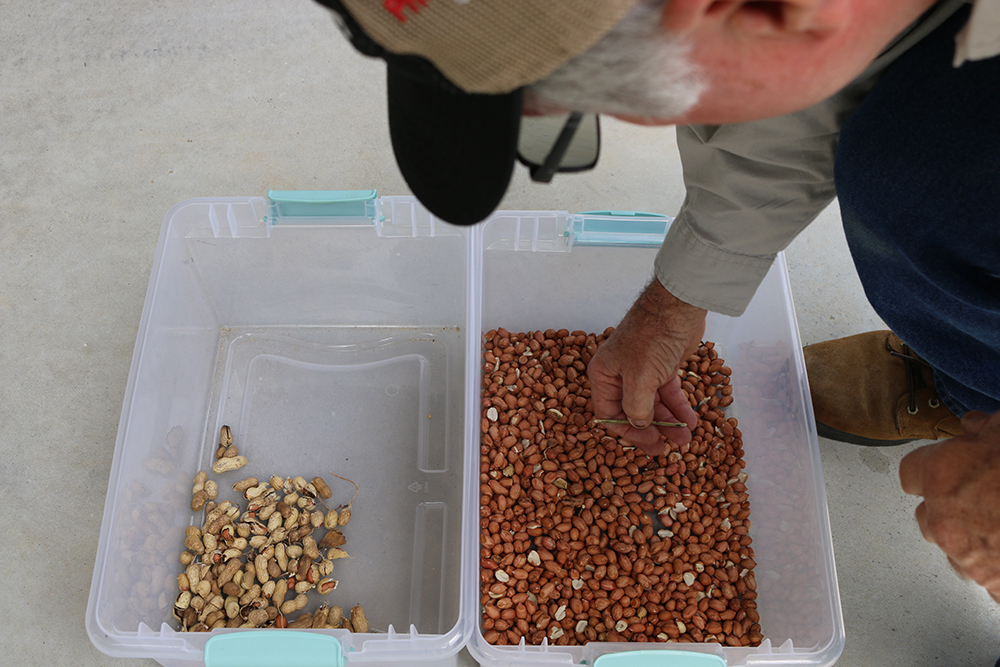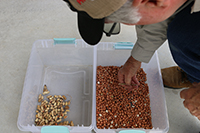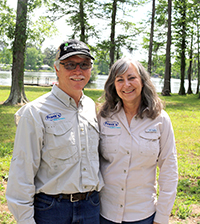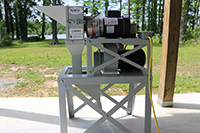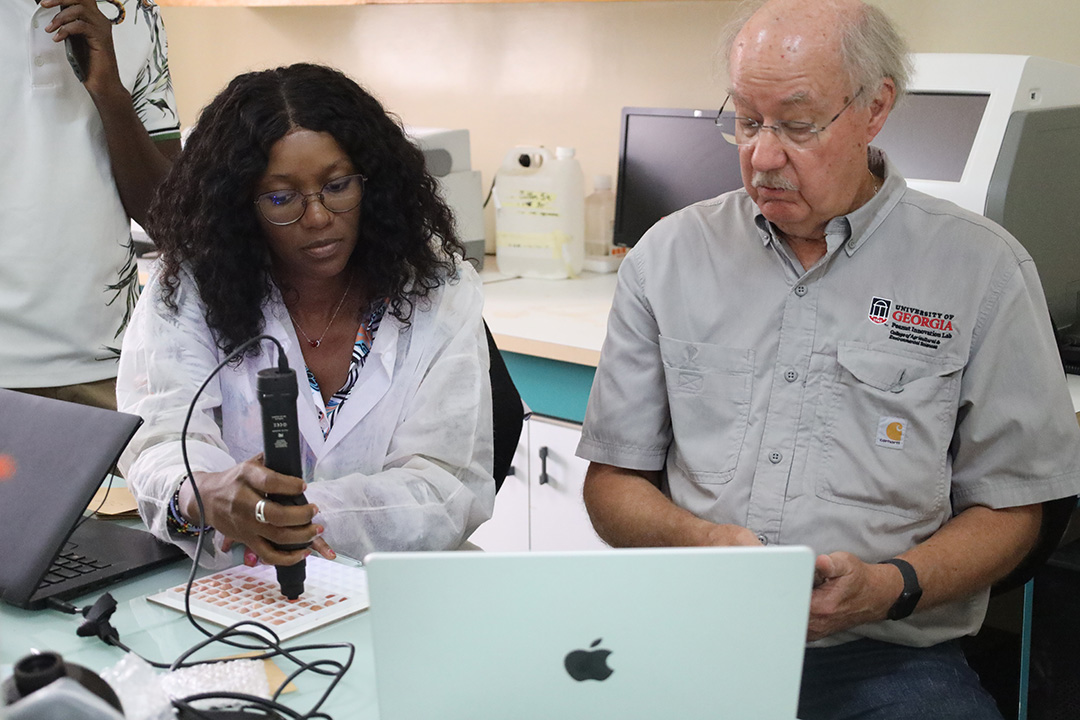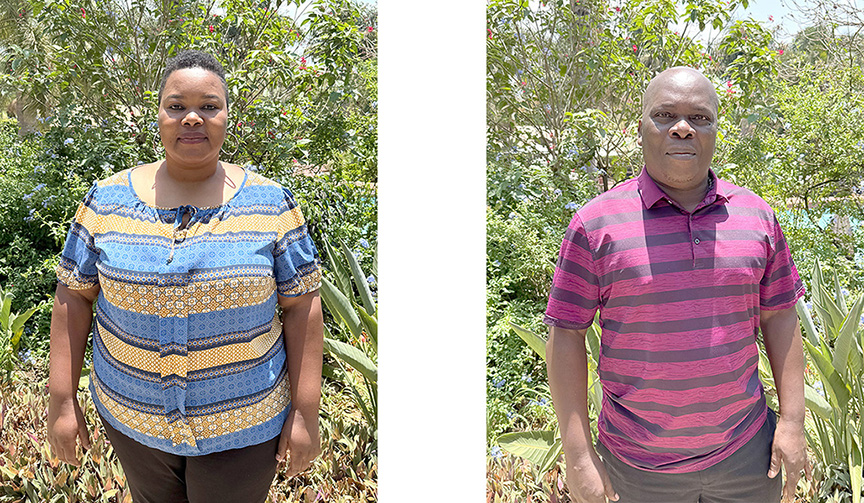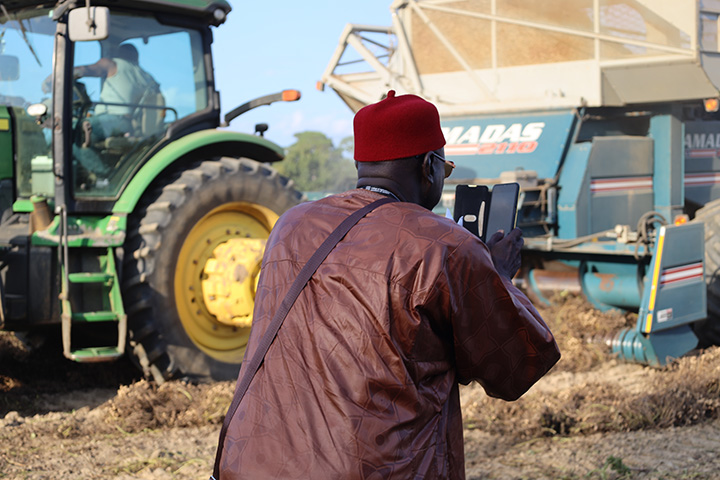The Feed the Future Innovation Lab for Peanut is deploying several innovative small-scale shellers and grading tables to assist groundnut breeding teams in Africa. The equipment will help collaborators in Senegal, Uganda, Ghana, Malawi, Zambia and Mozambique in their quest to release drought- and disease-resistant high-yielding varieties that smallholder farmers need.
Partnering with Frank Nolin, a semi-retired peanut processing equipment manufacturer in the U.S., the innovation lab developed small scale shelling and grading equipment to help overseas partners – particularly breeding programs – with the routine task of shelling nuts. While Nolin spent a career building industrial-scale equipment for agriculture in the U.S., he’s invested his time and know-how since retirement into Franks Designs for Peanuts to create machines that work in other contexts.
“We developed several models, and demonstrated them in Haiti, Malawi and the US. Scientists in the U.S. found the machines most useful for shelling moderately large seed lots -- a few tons -- quickly. We have also tested small sizing shaker tables, which are useful for sizing and sorting small seed lots,” said Dave Hoisington, the director of the Peanut Innovation Lab.
When the Peanut Innovation Lab, which is headquartered at the University of Georgia’s College of Agricultural and Environmental Sciences, started its current program in 2018, one of the first tasks was to assess the needs of a group of groundnut breeders across the continent. The scientists, many of them the only groundnut breeder in their region or country, collaborate with one another, sharing ideas, resources and germplasm to fight disease and improve groundnut resilience.
That needs-assessment showed small scale mechanization – to prepare seed and speed up agronomic and variety field trials – could build capacity in the breeding programs.
Different models of the sheller are made to turn through a hand crank or with an electric motor, while a set of various sized shelling baskets allow the machines to handle a wide range of seed shapes and sizes grown in different geographies.
Similarly, electric and hand-cranked grading tables come with several screens to allow a user to customize the machine for the task at hand.
The ease of customizing for the seed size minimizes splits and breakage. While the equipment may not be ideal for early-stage breeding in which each seed is important, the sheller can speed up shelling where large plots are used in research.
The machines also hold promise to improve the value chain in some countries that lack an organized system for grading. By giving aggregators a way to test for aflatoxin and grade peanut in outlying areas, buyers can pay a premium for good quality nuts and reward farmers who invest time and resources into following best practices.
“We are currently evaluating a package of these technologies for a buying point grading and aflatoxin testing system in Malawi to support an effort to move to in-shell trade there. Our partners in Haiti have used the hand-cranked sheller and aspirator to speed up their ability to do field-based aflatoxin and moisture tests prior to purchasing from farmers,” said Jamie Rhoads, the assistant director of the Innovation Lab.

